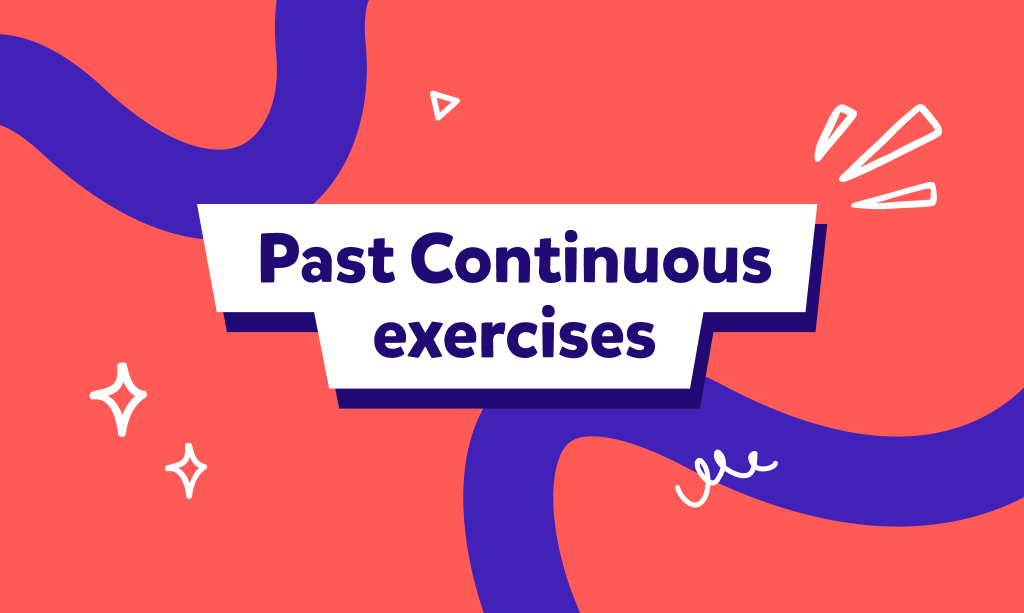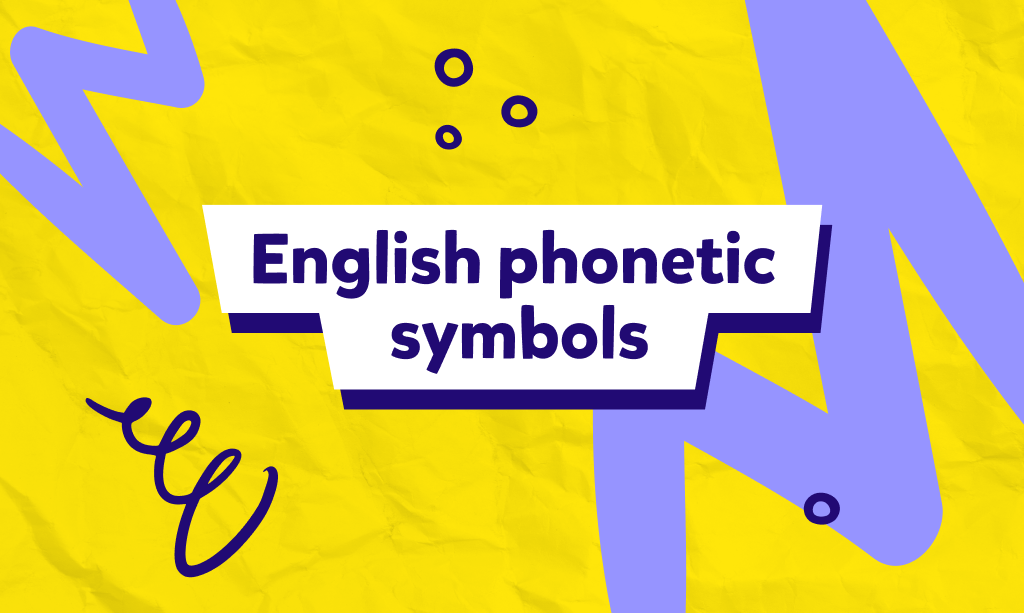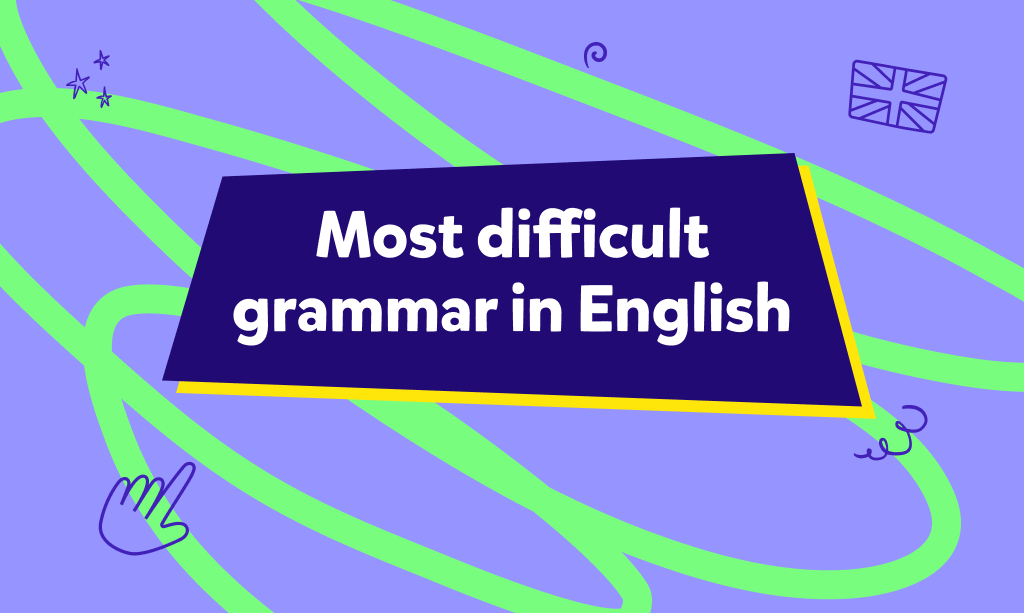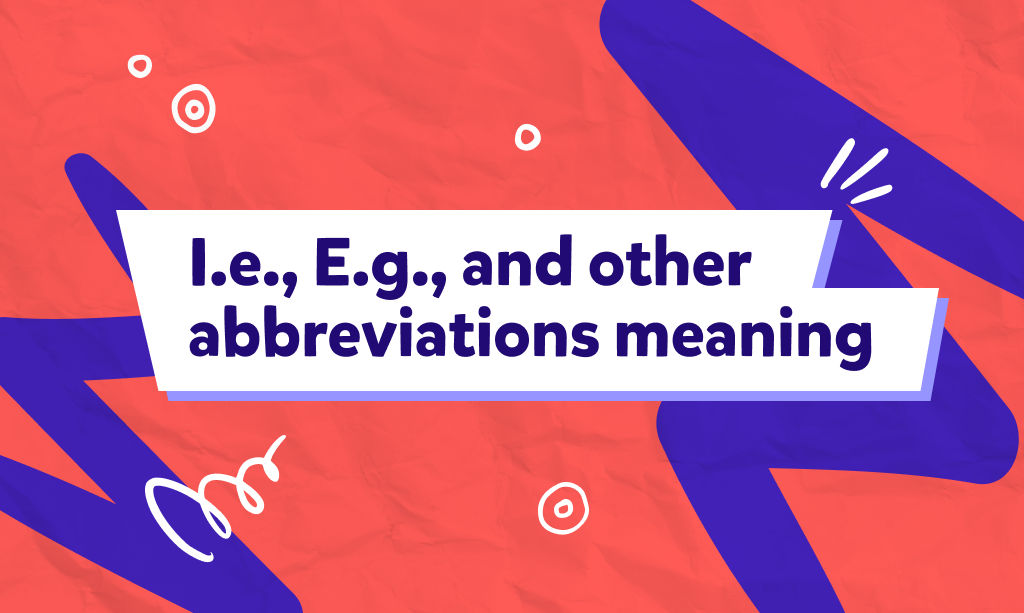تمارين زمن الماضي المستمر (past continuous tense) في اللغة الإنجليزية: لنعزز ما تعلمناه من خلال أسئلة متنوعة حول past continuous tense!
- شرح موضوع زمن الماضي المستمر (past continuous tense) في الإنجليزية
- تمارين زمن الماضي المستمر (past continuous tense) في اللغة الإنجليزية: إيجاد الصيغة والبنية الصحيحة
- تمارين زمن الماضي المستمر (past continuous tense) في الإنجليزية: ترتيب الكلمات لتكوين جمل
- تمارين زمن الماضي المستمر (past continuous tense) في الإنجليزية: الاستخدام مع الظروف الزمنية
- تعرّفوا على نوفاكيد!
إذا كنا نريد أن نتقن الحديث عن الماضي في اللغة الإنجليزية بشكل كامل، فمن الضروري أن نكون على دراية جيدة بزمن past continuous tense إلى جانب بعض التركيبات الأخرى. ورغم أن هذا الزمن ليس من أكثر الأزمنة استخداماً، إلا أنه يظهر أحياناً في أماكن غير متوقعة.
لنتجنب الشعور بالدهشة عند رؤية past continuous tense، ونستطيع استخدامه بأنفسنا بشكل جيد، علينا حل العديد من التمارين. وقد قمنا بجمع تمارين حول past continuous tense لهذا الغرض تحديداً. فلنراجع الموضوع سريعاً، ثم نبدأ بحل الأسئلة!
شرح موضوع زمن الماضي المستمر (past continuous tense) في الإنجليزية
قبل أن نبدأ بحل أسئلة past continuous tense، دعونا نستذكر هذا الموضوع بإيجاز، مما سيسهل علينا حل التمارين بشكل أفضل.
مجالات استخدام زمن الماضي المستمر (past continuous tense)
يُستخدم past continuous tense للتعبير عن فعل كان مستمراً في وقت محدد في الماضي. بمعنى أن حدثاً ما كان جارياً خلال فترة زمنية معينة في الماضي، يمكننا استخدام past continuous في هذه الحالة.
مثال:
.They were studying for their exams all night
(كانوا يدرسون لامتحاناتهم طوال الليل.)
من مجالات استخدام past continuous tense أيضاً، الحديث عن أفعال حدثت في نفس الوقت في الماضي.
مثال:
.John was cooking dinner while Mary was setting the table
(كان جون يطبخ العشاء بينما كانت ماري تحضر الطاولة.)
كذلك، نستخدم past continuous tense عندما نتحدث عن أفعال كانت مستمرة في الماضي وانقطعت بفعل آخر.
مثال:
.I was studying when my sister called
(كنت أدرس عندما اتصلت أختي.)
وأخيراً، يُستخدم past continuous tense، مثل present continuous، للتعبير عن أفعال تكررت باستمرار في الماضي. وغالباً ما يكون لهذا الاستخدام دلالة على الشكوى من الحدث المذكور.
مثال:
.They were always arguing about politics
(كانوا دائماً يتجادلون حول السياسة.)
كيفية استخدام زمن الماضي المستمر (past continuous tense)
لتكوين past continuous tense، سنجمع بين ما نعرفه عن الأزمنة المستمرة (continuous tenses) وقواعد الماضي (past). لا داعي للقلق، الأمر بسيط جداً!
أولاً، كما في present continuous، نضع فعل “be” أمام الفعل الرئيسي بصيغة “-ing”. ثم نصرف “to be” بصيغة الماضي البسيط لتناسب الفاعل.
مثال:
.I was walking
(كنت أمشي.)
في الجمل المنفية، نضيف ببساطة “not” بين “to be” والفعل الرئيسي. ويمكننا اختصار “was not” إلى “wasn’t” و**”were not”** إلى “weren’t”.
مثال:
.They were not / weren’t laughing
(لم يكونوا يضحكون.)
وأخيراً، في جمل السؤال التي تحتوي على past continuous tense، ننقل فعل “to be” مباشرةً بعد أداة السؤال “wh” إذا وجدت، أو في بداية الجملة في حال عدم وجود أداة سؤال. ونترك باقي الجملة كما هي.
مثال:
?Was she sleeping
(هل كانت نائمة؟)
مثال:
?What were you doing
(ماذا كنت تفعل؟)
بهذا الشرح السريع، استعدنا بعض المعلومات حول past continuous tense. إذا كنتم ترغبون في تعلم الموضوع بجميع تفاصيله من البداية، يمكنكم الاطلاع على المقال المخصص الذي أعددناه عن past continuous!
تمارين زمن الماضي المستمر (past continuous tense) في اللغة الإنجليزية: إيجاد الصيغة والبنية الصحيحة
في النوع الأول من أسئلة past continuous، سنعزز مهاراتنا في تصريف الفعل الرئيسي والفعل المساعد بشكل صحيح باستخدام هذا الزمن.
While we ___ our presentation, the power suddenly went out. (give)
were giving
she ___ to find her way when you saw her in the street? (try) ___
Was / trying
The students ___ quietly in the library when the bell rang. (study)
were studying
Why ___ he ___ so early from the meeting yesterday? (leave)
was / leaving
They ___ always ___ about politics at family gatherings. (argue)
were / arguing
The chef ___ a new recipe while the customers ___ their meals. (prepare / eat)
was preparing / were eating
it ___ when you left the building? (snow) ___
Was / snowing
The team ___ the final steps of the project when the manager arrived. (complet)
was completing
She ___ frequently ___ her friend’s new shop. (visit)
was / visiting
The students ___ for their upcoming exams when the fire alarm went off. (prepare)
were preparing
Why ___ they ___ at the park so late in the evening? (jog)
were / jogging
The author ___ her new book when the publisher announced a delay. (write)
was writing
you ___ any calls when I entered the room? (make) ___
Were / making
The animals ___ in the field as the sun was setting. (graze)
were grazing
The baby ___ while her mother ___ her meal. (sleep / prepare)
was sleeping / was preparing
تمارين زمن الماضي المستمر (past continuous tense) في الإنجليزية: ترتيب الكلمات لتكوين جمل
سنواصل تماريننا حول past continuous بأسئلة تساعدنا على فهم بنية الجمل التي تحتوي على هذا الزمن بشكل أفضل.
reading / book / interesting / an / was / I / while / you / texted / me
I was reading an interesting book while you texted me
studying / he / when / not / was / his / called / friends / him
He was not studying when his friends called him
were / they / to / going / the / office / when / the / rain / started / heavy / ?
?Were they going to the office when the heavy rain started
practicing / piano / she / was / the / while / her / family / dinner / had
She was practicing the piano while her family had dinner
were / you / thinking / of / solution / a / when / problem / the / arose / ?
?Were you thinking of a solution when the problem arose
working / on / important / project / the / was / team / an / when / power / went / out
The team was working on an important project when the power went out
was / constantly / barking / dog / the / I / trying / while / to / sleep
The dog was constantly barking while I was trying to sleep
discussing / you / new / ideas / for / project / the / when / he / arrived
You were discussing new ideas for the project when he arrived
driving / they / were / countryside / through / the / peaceful / afternoon / the / in
They were driving through the peaceful countryside in the afternoon
writing / she / an / email / important / was / boss / to / her / when / interrupted / was / she
She was writing an important email to her boss when she was interrupted
تمارين زمن الماضي المستمر (past continuous tense) في الإنجليزية: الاستخدام مع الظروف الزمنية
أخيراً، سنقوم بحل بعض الأسئلة التي تتيح لنا التعرف على الظروف الزمنية (adverbs) الشائعة التي تستخدم مع past continuous tense في اللغة الإنجليزية.
Weren't they rehearsing for their big performance ___? (last night /tomorrow /in a week)
last night
She was ___ calling her friends for advice whenever she felt uncertain. (frequently /once /tomorrow)
frequently
He wasn’t really focusing on his tasks ___; he seemed distracted. (last week /at that time /in two days)
at that time
We were ___ discussing plans for our next vacation over dinner. (always /later /tomorrow)
always
They were organizing a charity event ___. (every year /in a minute /last year)
every year
Wasn’t she ___ thinking about moving to a new city? (sometimes /yesterday /right now)
sometimes
I was feeling nervous ___ because I had a big presentation to prepare for. (next week /yesterday /at that moment)
at that moment
The team was ___ brainstorming ideas for the project deadline. ( tomorrow /in a month /constantly)
constantly
he was practicing guitar every evening to improve his skills.(Back then /tomorrow) ,___
Back then
Were you ___ checking your emails while waiting for the flight? (next time /constantly /yesterday)
constantly
He was ___ making new connections at networking events. (frequently /yesterday /tomorrow)
frequently
Weren’t they discussing the project details ___? (in two weeks /last week /always)
last week
She was ___ cooking new recipes during the lockdown. (never /often /next time)
often
I was ___ practicing my speech in front of the mirror. (frequently /tomorrow /in an hour)
frequently
we were spending every weekend at the beach. (Back then /Next month) ,___
Back then
تعرّفوا على نوفاكيد!
تقدم نوفاكيد منهجية علمية قائمة على التفاعل والمرح باستخدام أساليب تربوية تدمج الألعاب والأفلام والألغاز وغيرها من الوسائل التي تطور مهارات الطفل في تعلم اللغة الإنجليزية كلغة ثانية. سجل الآن واحصل على درسك الأول مجانًا









































